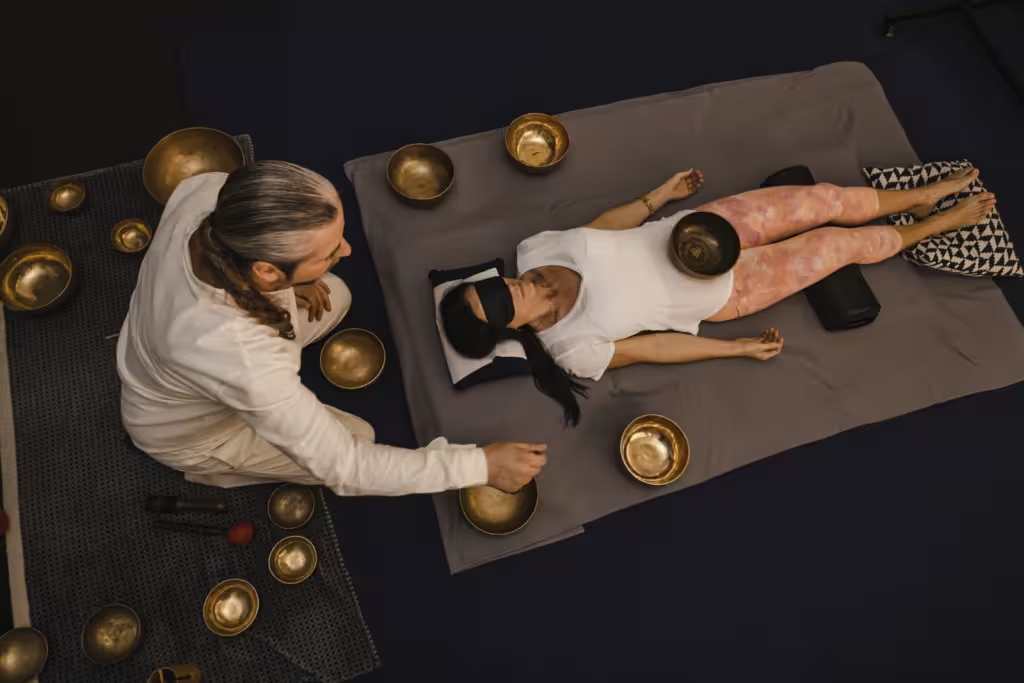Health as a Path
What is health, really? For centuries, we’ve mostly understood it as the absence of illness—a state we only tend to when something in the body stops working properly.
However, in recent times, health has been redefined as a dynamic balance between body, mind, emotions, and environment. It’s not simply a reaction to disease, but a way of living—a state of vital well-being cultivated day by day.
To fully understand health, we must see it as a web of relationships: with our body, our emotions, our thoughts, with nature, and with the people around us. From this holistic perspective, health is not only physical, but also mental, emotional, energetic, and social.
Physical Health: Nutrition, Movement, and Vitality
A healthy body is not one that fits aesthetic standards, but one that functions optimally, adapting to the needs of daily life. This involves:
• Conscious nutrition:Nourishing ourselves with living, fresh, nutrient-rich foods that align with our body’s needs. Food is not just fuel—it’s information for our cells.
• Movement and strength: It’s not about a gym routine, but about keeping the body active, flexible, and functional to carry out daily activities with energy and without pain.
• Internal balance: Gut health, nervous system function, and hormonal regulation are fundamental to overall well-being.
Emotional Health: Recognize, Express, and Transform
Emotions are an essential part of the human experience. Yet when we don’t understand or process them, they can become blockages that impact our physical and mental health. Optimal emotional health includes:
• • Recognizing emotions without identifying with them We are not sadness, we are not anger—we simply move through these emotions.
• • Emotional expression and regulation. Through art, dance, writing, therapy, or sound, we can release stagnant emotions.
• • Emotional self-care practices. From conscious breathing to meditation, small daily actions can help us cultivate emotional balance.
Mental Health: The Power of Thought and Attention
Our mind is a powerful tool, but when left unchecked, it can become a constant source of anxiety, doubt, and suffering. Mental health doesn’t mean the absence of negative thoughts, but the ability to observe them without letting them take over. Key elements include:
• • Awareness of inner dialogue.Do we speak to ourselves with love or judgment? The way we talk to ourselves shapes our reality.
• • Stress regulation. Chronic stress disrupts the nervous system and directly impacts the body.
• • Moments of silence and connection. Pausing, reflecting, and allowing mental rest helps us find balance in the rush of modern life.
Environmental and Relational Health: We Are What We Inhabit
We cannot talk about health without including our environment. The state of nature, the quality of the air, the food we eat, and the relationships we nurture are all part of the ecosystem we live in. Caring for our health also means caring for the Earth, our spaces, and the bonds that sustain us.


 Patience and emotional control: Sound calms the mind. This helps to cultivate the patience and self-control necessary to face the daily challenges of parenting.
Patience and emotional control: Sound calms the mind. This helps to cultivate the patience and self-control necessary to face the daily challenges of parenting. The body is the great experimenter of our existence. Through it, we perceive, feel, taste, and move. It is the sensory channel through which information from the environment flows, later processed by the brain.
The body is the great experimenter of our existence. Through it, we perceive, feel, taste, and move. It is the sensory channel through which information from the environment flows, later processed by the brain. 